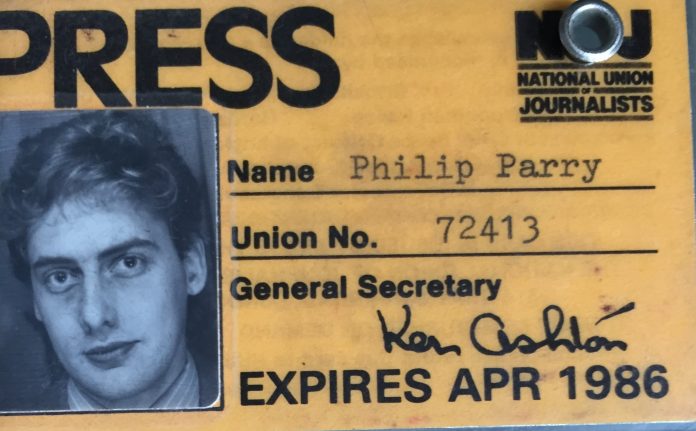- Return to sender - 20th February 2026
- Legal eagle - 19th February 2026
- Round Robin - 19th February 2026

On The Eye our Editor Phil Parry has described how he was helped to break into the South Wales Echo office car when he was a cub reporter, recalled his early career as a journalist, the importance of experience in the job, making clear that ‘calls’ to emergency services and court cases are central to any media operation.
He has also explored how poorly paid most journalism is when trainee reporters had to live in squalid flats, the importance of expenses, and about one of his most important stories on the now-scrapped 53 year-old BBC Wales TV Current Affairs series, Week In Week Out (WIWO), which won an award even after it was axed, long after his career really took off.

Phil has explained too the importance of actually speaking to people, the virtue of speed as well as accuracy, why knowledge of ‘history’ is vital, how certain material was removed from TV Current Affairs programmes when secret cameras had to be used, and some of those he has interviewed.
On polling day he here compares this election to all those he has covered in the past.
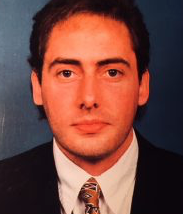
I have reported on every major election since 1987 and this is by far the strangest.
Voters are presented with a choice between a hard left Labour leader whose party is promising to nationalise major utilities within 100 days of being in power and under investigation for anti-Semitism, pitted against a right wing Tory leader accused of lying as well as cheating, or other smaller parties who haven’t a hope of winning a majority in Westminster.
It is no choice at all really.
The whole thing has been overshadowed by one overriding issue – Brexit.
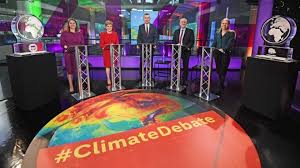
Covering the campaign has not been easy for journalists, with Boris Johnson refusing to be grilled by one presenter on TV, and being represented by a melting ice statue in a debate about climate change on Channel Four because he would not appear.
Meanwhile his Labour rival, Jeremy Corbyn, has become increasingly irascible as he was quizzed by certain reporters from ‘right wing’ papers about his plans for nationalisation, or spending billions of pounds of taxpayers’ money.
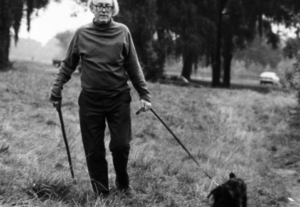
The parallels with the 1983 General Election (in which I first voted) are uncanny.
Then the left wing leader was Michael Foot and the radical manifesto of Labour was described as the ‘longest suicide note in history’.
The UK media supposedly had a right wing agenda, and were out to ‘get’ Labour.
It is clear that in this one fair dealing between politicians and journalists is endangered.
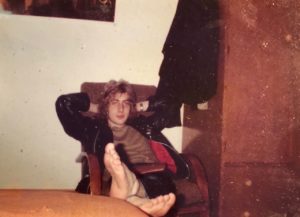
The abuse I have endured from supporters of all parties during the election campaign as we have endeavoured to report facts has been extraordinary.
Just because we report the latest twist in the anti-Semitism crisis gripping Labour, or the polls showing The Conservatives ahead, does NOT make me a supporter of Mr Johnson.
As an old journalist friend put it: “It’s not ME saying it!”.
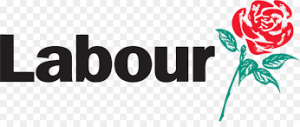
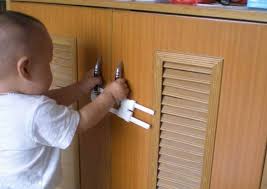
The big losers in this campaign are beyond dispute – they are the truth and centrist politics.
Trust has been sacrificed so recklessly on the altar of ambition that when The Conservative leader suggested on BBC Question Time that the truth mattered the studio audience laughed at him.
Mr Johnson and Mr Corbyn have both promised to unite the UK but Britain is more polarised than ever as a result of their leaderships.
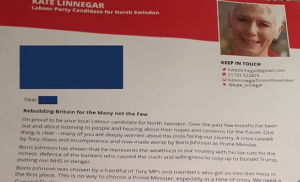
Labour voters are telling desperate party candidates that they’ll vote for them only if they are sure Mr Corbyn won’t win, and activists are not putting their leader’s name on campaign leaflets.
Labour has moved to the far left, while the Tories are metamorphosing into an interventionist, anti-European party.
“Allegiances are very thin and people are voting against something rather than for it”, one former Conservative cabinet minister said.
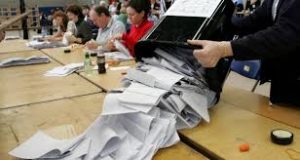
The whole thing is more bizarre than any of the campaigns in the past!
The first election I covered was the 1987 General Election when I worked for Cambrian News Agency on Charles Street in Cardiff, supplying stories for all the UK newspapers and broadcasters, as an extremely green 24 year old reporter.

I was stationed in the Caerphilly count, and tasked with the responsibility of phoning the results back to my office, where they were then fed on to the wires.
This was the MP constituency of the former Secretary of State for Wales Ron Davies, who was then a Labour opposition spokesman and a rising star, so that made it an important count.
Ron won his seat easily, which was always going to be the case, but I have several clear images of the night.
The key one concerns the Liberal Party (as it was then called) candidate Michael Butlin.
I always remember he very ostentatiously opened what looked like a bottle of bubbly during the count.
This was highly ironic in the circumstances as he came in a distant third!
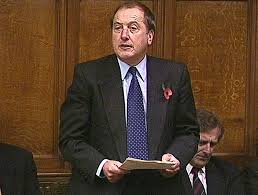
I now understand it was Guinness and champagne for his party workers, but my point is still a strong one.
Mr Butlin slipped into relative obscurity, but Ron’s political career soared from then on, yet crashed spectacularly.
First Ron was the ‘architect of devolution’ in Wales, but then in the media, he was the ‘architect of his own destruction’.

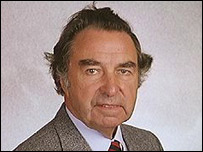
During the ’87 election campaign itself I was ‘hired out’ by Cambrian to work for HTV Wales News (before it became ITV Cymru/Wales).
I clearly recall interviewing the then Labour MP for Newport East, Roy Hughes, outside what was at the time the Transport and General Workers’ Union (T&G) offices on Cathedral Road in Cardiff.
In television news in those days, you had to secure a ‘two-shot’ afterwards of the interviewee and reporter for editing purposes, where the interviewer talked mindlessly about the weather or what was eaten for breakfast.
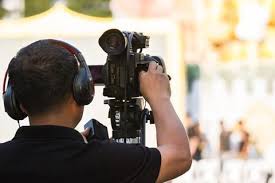
For this the camera was moved back while the interviewee (in this case Mr, then ‘Lord’, Hughes) would have to say nothing, and pictures were recorded (but without the sound) of the reporter’s jaw moving, so that it could be ‘overlaid’ across a question.
It was explained patiently by me to Mr Hughes that he had to KEEP QUIET.
But instead of not moving his mouth, he insisted on saying: “Ah! Yes, I know what I have to do now. This is where I say what I had for breakfast!”.
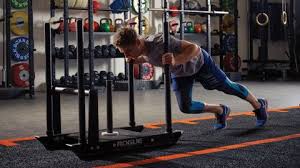
I had to explain it all yet again to him that it was MY mouth moving, not his!
In the 80s and early 90s, when the Tories won election after election it was common for Labour MPs to use the phrase ‘one more heave’ to gain victory.
Yet I remember a South Wales Labour MP telling me on election night in 1992 when his party had lost yet again to The Conservatives: “We’ll never do it”.
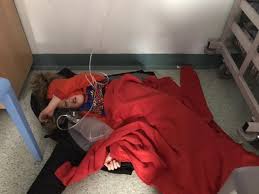
The controversy this week over a four-year-old boy who was allegedly ‘forced’ to sleep on the floor of a hospital, and what it does or does not say about the state of the NHS, reminds me of the ‘war of Jennifer’s ear’ during that General Election campaign.
The name by the way is an allusion to the War of Jenkins’ Ear, an actual armed conflict of the 18th century.
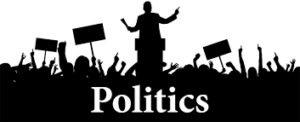
Labour ran a Party Election Broadcast about a five-year-old girl called Jennifer with glue ear who waited a year for the simple operation to insert vents.
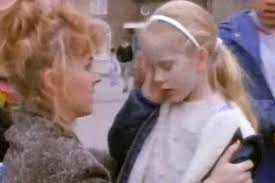
The Labour leader at the time Neil Kinnock employed the slogan: “If you want to vote Conservative, don’t fall ill”.
Now it’s been claimed the picture of the four year-old-boy was taken from Facebook after the account was hacked, when it was used to post false information about him on the floor at Leeds General Infirmary.
It has been said it was all staged for political purposes, probably by the praetorian guard of the Labour party, Momentum.
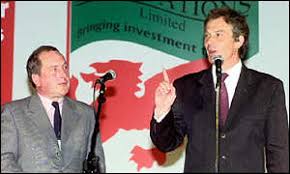
I also covered the ’97 devolution vote in another draughty leisure centre, this time in the Rhondda for BBC Wales TV, which was won by the narrowest of margins.
It was so close in fact that I recorded an interview with a senior Plaid Cymru politician, to be broadcast the following day on the basis that it had been a ‘no’ vote and I didn’t know it was ‘yes’ until I arrived back home in Cardiff!
As I watched the wave of ‘no’ results come in on the night with a journalist colleague, he murmured: “It’s not going to happen”.
For the 2010 General Election I was again in a draughty leisure centre for the BBC (although I had formally left so I did the work as a freelance) and the floorboards where I was positioned for the live ‘two-way’ squeaked terribly.
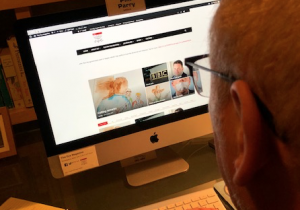
I had to stand in a certain way so that the squeaking wouldn’t be picked up on the microphones!
The subsequent elections I have covered (much to the candidates’ annoyance!) on The Eye and they have all had their quirks, but this is the weirdest!
We will see what happens after the votes are counted – but it could be back to ‘one more heave’!
 Phil Parry’s memories of his extraordinary 36-year award-winning career in journalism as he was gripped by the incurable disabling condition Hereditary Spastic Paraplegia (HSP), have been released in a major new book ‘A GOOD STORY’. Order the book now!
Phil Parry’s memories of his extraordinary 36-year award-winning career in journalism as he was gripped by the incurable disabling condition Hereditary Spastic Paraplegia (HSP), have been released in a major new book ‘A GOOD STORY’. Order the book now!








